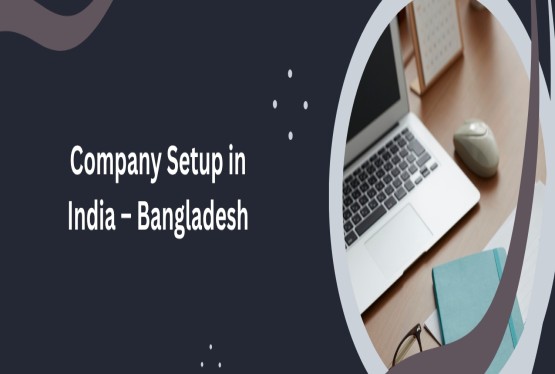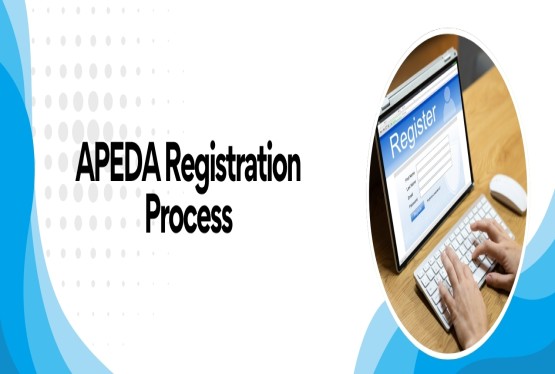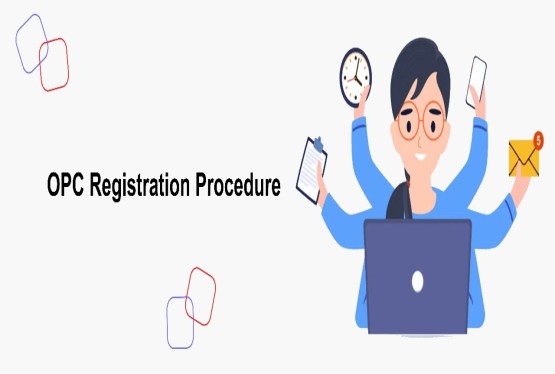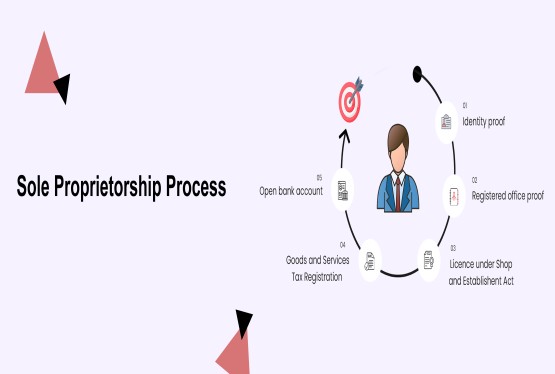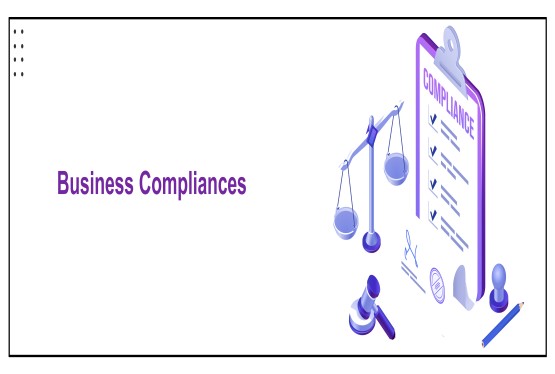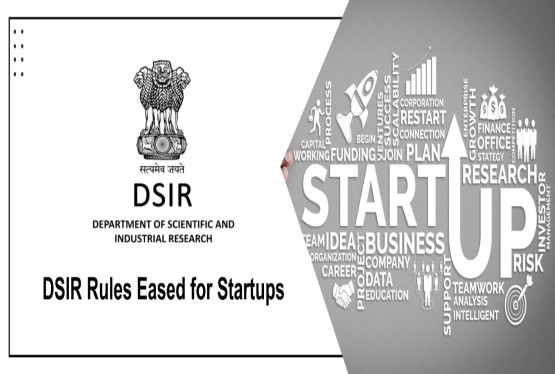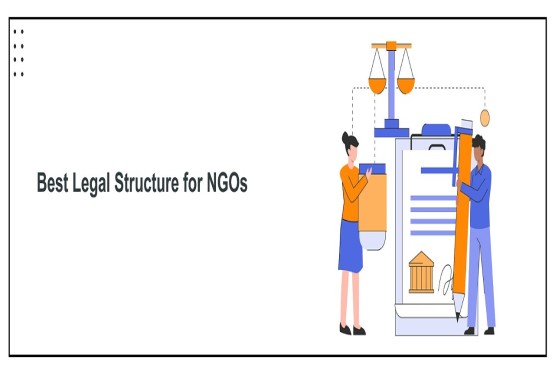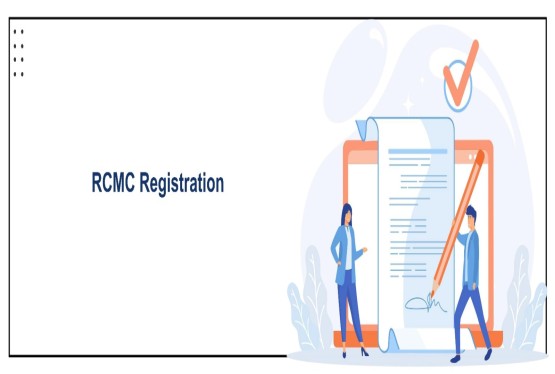In a Private Limited Company, a minimum of two members is required to incorporate and operate the business, while a Public Limited Company requires at least seven members. On the other hand, a One Person Company (OPC) is a unique form of business structure that allows a single individual to own and manage the company, holding 100% ownership and control.
Now, the good thing about an OPC is that it can be converted into a Private Limited Company (Conversion of OPC to Pvt Ltd) or a Public Limited Company anytime it wants without any mandatory criteria, which means if the business grows and the owner feels the need to bring in more people, partners, or investors, they can easily make the change. However, there’s one exception: an OPC cannot convert into a Section 8 Company because a Section 8 Company is a special kind of company formed for charitable purposes, like non-profit organizations, have strict rules and do not allow the owner to convert their OPC into one. In short, OPCs have the flexibility to change into Private or Public Limited Companies if needed, but they cannot become Section 8 Companies, which are set up for charity and non-profit activities.
Section 18 of the Companies Act, 2013 – Conversion of Companies Already Registered
“A company of any class registered under this Act may convert itself into a company of another class by altering its memorandum and articles of association in accordance with the provisions of this Chapter.”
An OPC registered under the Companies Act, 2013 can voluntarily convert itself into a Private or Public Company under Section 18, subject to fulfilling the conditions prescribed in Rule 6 of the Companies (Incorporation) Rules, 2014, which deals with voluntary and mandatory conversion of OPCs.
Key Requirements for Conversion under Section 18
1. Alteration of MOA & AOA in form INC-33 & INC-34, The company must alter its Memorandum and Articles of Association to reflect the new class of company.
2. Approval of Registrar of Companies (ROC) by filing INC-6: File the necessary e-forms with ROC (such as INC-6 for OPC conversion), along with the altered MOA & AOA with private limited company clauses.
3. Minimum Members & Directors:
-
For conversion to a Private Company: Minimum 2 members and 2 directors.
-
For conversion to a Public Company: Minimum 7 members and 3 directors.
4. PAN/TAN & Other Updates: Post-conversion, all legal and tax registrations must be updated accordingly.
An OPC that has grown and now wishes to induct co-founders/ 2nd Shareholder or attract investment may opt to convert into a Private Limited Company for dilution of equity. Under Section 18, this conversion is allowed by modifying its charter documents and complying with relevant rules.
What is Rule 6 of the Companies (Incorporation) Rules, 2014 – Conversion of One Person Company (OPC) ?
As per Rule 6, a One Person Company (OPC) can convert itself into a Private Company or Public Company (excluding a Section 8 Company), subject to the following conditions:
Pre-conditions for Conversion
-
Increase in Members & Directors:
-
For conversion into a Private Company: Minimum 2 members and 2 directors are required.
-
For conversion into a Public Company: Minimum 7 members and 3 directors are required.
-
Minimum Capital:
-
The company must maintain the minimum paid-up share capital as prescribed for the respective class of company under the Companies Act, 2013.
-
Compliance with Section 18:
-
The conversion process must adhere to Section 18 of the Companies Act, 2013, which governs the alteration of Memorandum and Articles of Association for converting into another class of company.
Filing Requirement – E-Form INC-6
-
The OPC must file E-Form INC-6 with the Registrar of Companies (ROC) for its conversion into a Private or Public Company.
-
Similarly, a Private Company may also convert itself into an OPC by filing Form INC-6, subject to meeting the eligibility criteria.
Hence, A OPC can convert itself into a Private or Public Company other than Section 8 company after increasing the minimum number of members and directors to 2 or 7 members and 2 or 3 directors, as the case may be, and maintaining the minimum paid-up capital as per requirements of the act for such class of company and by making compliance of Section 18 of the Act for conversion.
For Example:-
TechGuru Solutions OPC a Tech based Company was registered as OPC in 2021 to provide Software Development Related Services as TechGuru Solutions was established by Mr. Ramesh Kumar, a Software Engineer by Qualification as the Sole shareholder and Director for its flexibility and less compliance requirements.
By 2024 TechGuru had grown significantly as its revenue increased to 70 lakh and due to expansion of its operations Mr. Ramesh Decided to convert TechGuru Solutions OPC into a Private Limited Company after following steps :-
1. Prepare Draft Altered Memorandum of Association in form INC-33 by incorporating the changes required for Conversion of OPC into Private Limited Company
2. Prepare Draft Altered Article of Association in form INC-34 by the incorporation the following changes
-
Insert restrictions applicable to Private Limited Company as per Section 2 (68)
-
Incorporate the Changes as required for Private Limited Company
3. Draft and Issue Notice of Board Meeting at least 7 days before the Board Meeting (Section 173 (3) of the Companies Act 2013
4. Convene the Board Meeting as per the Notice calling the Board meeting for
-
Considering the Proposal for Conversion of OPC into Private Company & Alteration of Memorandum and Article of Association
-
Increase the Number of Directors to minimum of Two (2) as per section 149 of the Companies Act 2013 as required in case of Private Limited Company
-
Increase the Number of Members to Minimum of Two (2) as per section 2 (68) of the Companies Act 2013 as required in case of Private Limited Company
5. Pass the Resolution in Board Meeting for Conversion of OPC into Private Limited Company
-
In case OPC have Only One Director then enter the Resolution in the Minutes Book of the Director’s Meeting, which should be signed and dated by the director and date of signing shall be considered as the date of Board meeting as per Section 122(4) of the Companies Act 2013
-
In case OPC have Two or more Directors then hold a Board meeting and the pass the Board Resolution for Conversion
6. The Resolution passed for alteration of Memorandum and Article of Association of the Company shall be duly communicated to member and entered in the minutes book required to be maintained under section 118 of the Companies Act 2013 and signed and dated by the member and date of signing shall deemed to be the date of the meeting for the compliance of Provision of the Act ( Rule 6(3) read with section 122(3) of the Companies Act 2013
7. Filling of Resolution pursuant to Section 117 of the Companies Act 2013 in E- Form MGT - 14 within 30 days of the passing the said resolution with Registrar of Companies (“ROC”)
8. Filling of Application for Conversion in E- Form INC – 6 with the Registrar of Companies for its conversion of OPC into Private Limited Company within 30 days of passing special resolution
Note: SRN of E- Form MGT -14 is Mandatory field in E- Form INC – 6
9. Filling of Resolution for Appointment of Directors in E form DIR – 12 within 30 days of appointment in case OPC have only One Director for compliance of Provision of section 149 of the Companies Act 2013 or if company intends to appoint more directors
10. Registrar will issue Certificate of Conversion after being satisfied with all the compliance requirements
What are the documents required for OPC conversion to Pvt ltd ?
E form MGT – 14 To be filed with Registrar of Companies (“ROC”) pursuant to (Section 117 of a Companies Act 2013) for Passing Special Resolution as Required for Conversion of OPC into Private or Public Company should have following documents before filing with MCA:
-
Copy of altered MOA has to be attached (Nominee Clause has to be to omitted the word OPC has to be omitted from the name clause of Company).
-
Copy of altered AOA has to be attached (Articles of private company has to be adopted. Remember to include the definition of Private Company as per Section 2(68) in the definition of Company)
-
Copy of the Special Resolution (Remember no copy as explanatory statement has to be attached in case of OPC as Section 102 not applicable to OPC)
E form INC - 6 has to be filed with Registrar of Companies (“ROC”) within next 30 days of filling MGT – 14
-
Altered MOA and AOA of company
-
Latest financial statements of the company duly signed and attested by statutory Auditor of the Company. (Audited financial statements of the previous year have to be attached).
-
Copy of Board resolution approving the conversion of the company and authorising the sending of notice.
Other attachments shall be as follows for both form
-
Affidavit by all the existing directors of the company for the conversion.
-
Consent by the nominee for the conversion along with PAN and Aadhar duly attested.
-
Board Resolution for approval of transferring the shares to another proposed member(s) along with Share transfer form (SH-4). (Note: There will be no change in the subscription clause of MOA.)
-
List of Members and list of Directors on letterhead of company.
-
List of Creditors with the amounts outstanding against each of their names in accordance with the financial statements of the company along with Individual NOC received from them regarding the proposed conversion.
-
Copy of the Special Resolution.
The Registrar on being satisfied that all the procedural requirements are being complied with shall record the change in its Register and issue the Certificate thereof.
What are the due date for filing form MGT-14 & INC-6 ?
After filing of the E – Form MGT-14, E-form INC-6 has to be filed with the Registrar of companies within the next 30 days of filing of MGT-14.
What are the fees for filing form MGT-14 & INC-6 ?
Normal Filling Fee (In Case of Company having Share Capital)
|
Nominal Share Capital (INR) |
Fees Applicable (INR) |
|
Less than 1,00,000 |
200 |
|
1,00,000 to 4,99,999 |
300 |
|
5,00,000 to 24,99,999 |
400 |
|
25,00,000 to 99,99,999 |
500 |
|
1,00,00,000 or more |
600 |
Additional Fees in case of Delay in filling of webforms
|
Period of Delay |
Additional Fee Applicable (INR) |
|
Up to 30 days |
2 times of normal filing fees |
|
More than 30 days and up to 60 days |
4 times of normal filing fees |
|
More than 60 days and up to 90 days |
6 times of normal filing fees |
|
More than 90 days and up to 180 days |
10 times of normal filing fees |
|
More than 180 days |
12 times of normal filing fees |
Recent Amendment Under MCA for OPC Conversion and Grants Some Relief
Amendment in Companies Incorporation Rules,2014
Earlier Provision:
-
OPC can be converted into any Company only after expiry of Two (2) years of Incorporation
-
OPC need to be Compulsory convert itself into Private Company or Public Company if share Capital of the OPC exceed Rs. 50 Lakhs or its average annual turnover during the relevant exceeds Rs. 2 crore
Amended Provision:
-
OPC company can be converted into any company since its Incorporation
-
Now, there is no provision related to Compulsory Conversion after the said amendment, an OPC may continue to act as OPC even after its share Capital of the exceed Rs. 50 Lakhs or its average annual turnover during the relevant exceeds Rs. 2 crore
FAQs
Q1. Can we convert an OPC to a private limited company?
Ans. Yes, OPC can be converted to a private limited company pursuant to Section 18 of the Companies Act, 2013 & Rule 6 of Companies (Incorporation) Rules, 2014.
Q2. Can an OPC be converted back to an OPC from a private limited company?
Ans. Once a company has converted from an OPC to a private limited company, the process of conversion cannot be reversed back to an OPC. If the business owner wants to revert to a single-member structure, a new OPC will need to be formed.
Q3. Is it necessary to get the approval of shareholders or creditors for the conversion?
Ans. Yes, the conversion requires the approval of the sole shareholder through a Board Resolution. Additionally, creditor consent may be required in some cases, especially when the company has outstanding liabilities or debts.
Q4. Filling Requirements for Conversion of OPC into Private Limited Company?
Ans. E- Form MGT-14 to be filed within 30 days of passing Special Resolution and E- form INC – 6 to be filled for Conversion of OPC into Private Limited Company.
Q5. Can OPC be converted into any Company since its Incorporation?
Ans. Yes OPC can be converted into any Company since Incorporation restriction under sub rule 7 of 2 years should expire from incorporation from voluntary conversion of OPC into any Company has been Omitted via amendment in Companies (Incorporation) Rules, 2014 w.e.f 1st April 2021
Q6. What is the cost of converting an OPC to Private Limited Company?
Ans. The cost of conversion includes:
|
Component |
Estimated Cost (INR) |
|
Government Filing Fee (based on capital) |
Rs.300 to Rs.600 (approx.) |
|
E-Form Filing Fee for INC-6 |
Rs.500 (fixed) |
|
Professional Fee (CA/CS) |
Rs.5,000 – Rs.15,000 (varies by consultant) |
|
Stamp Duty (on altered MOA & AOA) |
Varies by state and capital amount |
|
Total Estimated Cost |
Rs.6,000 to Rs.20,000+ |
Note: Actual cost may vary based on share capital, state, and professional fees.
Q7. Can an OPC be converted into a Non-Profit Company (Section 8) or a Private Company?
Ans. (i) Conversion into a Private Company:
Yes, an OPC can be converted into a Private Company by complying with Rule 6 of Companies (Incorporation) Rules, 2014 and Section 18 of the Companies Act, 2013. Form INC-6 must be filed with the ROC for this purpose.
(ii) Conversion into a Section 8 Company (Non-Profit):
No, an OPC cannot be converted directly into a Section 8 Company. Section 8 Companies are formed for charitable or non-profit purposes and have different registration requirements and objectives, which are incompatible with the single-person structure of OPC.
Q8. Is an OPC a Private or Public Company?
Ans. An OPC (One Person Company) is legally classified as a Private Company under the Companies Act, 2013. As per Section 2(68):
“A private company means a company having a minimum paid-up share capital as may be prescribed, and which by its articles (i) restricts the right to transfer its shares; (ii) except in case of One Person Company, limits the number of its members to two hundred;”
Hence, OPC is a subtype of Private Company, with the key distinction that it has only one member and limited eligibility for conversion and funding.

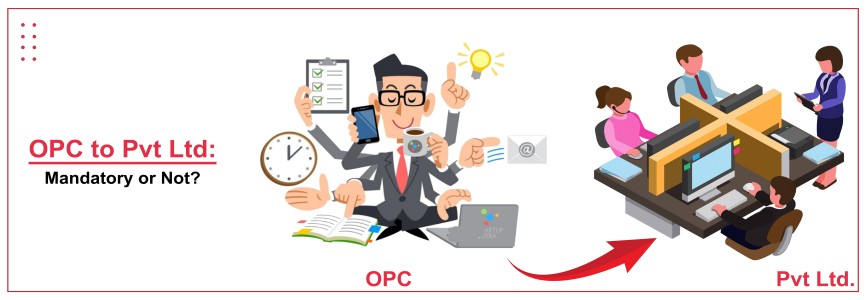










_crop10_thumb.jpg)





_crop10_thumb.jpg)




























-Form_crop10_thumb.jpg)

_crop10_thumb.jpg)























_learn_crop10_thumb.jpeg)
































_crop10_thumb.jpg)

_crop10_thumb.jpg)





















_crop10_thumb.jpg)















_for_Foreign_Directors_learn_crop10_thumb.jpeg)




_Act,_2015_learn_crop10_thumb.jpg)
































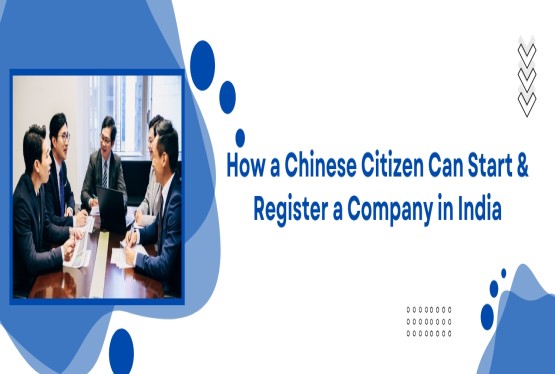
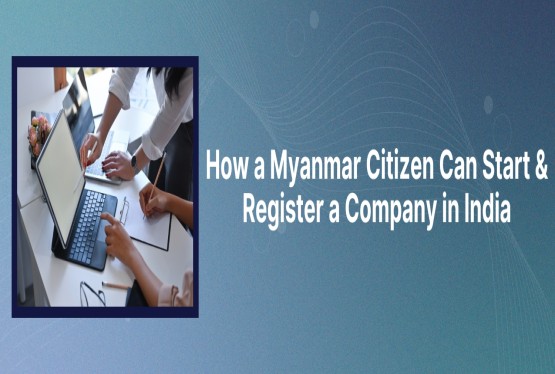

_learn_crop10_thumb.jpg)
